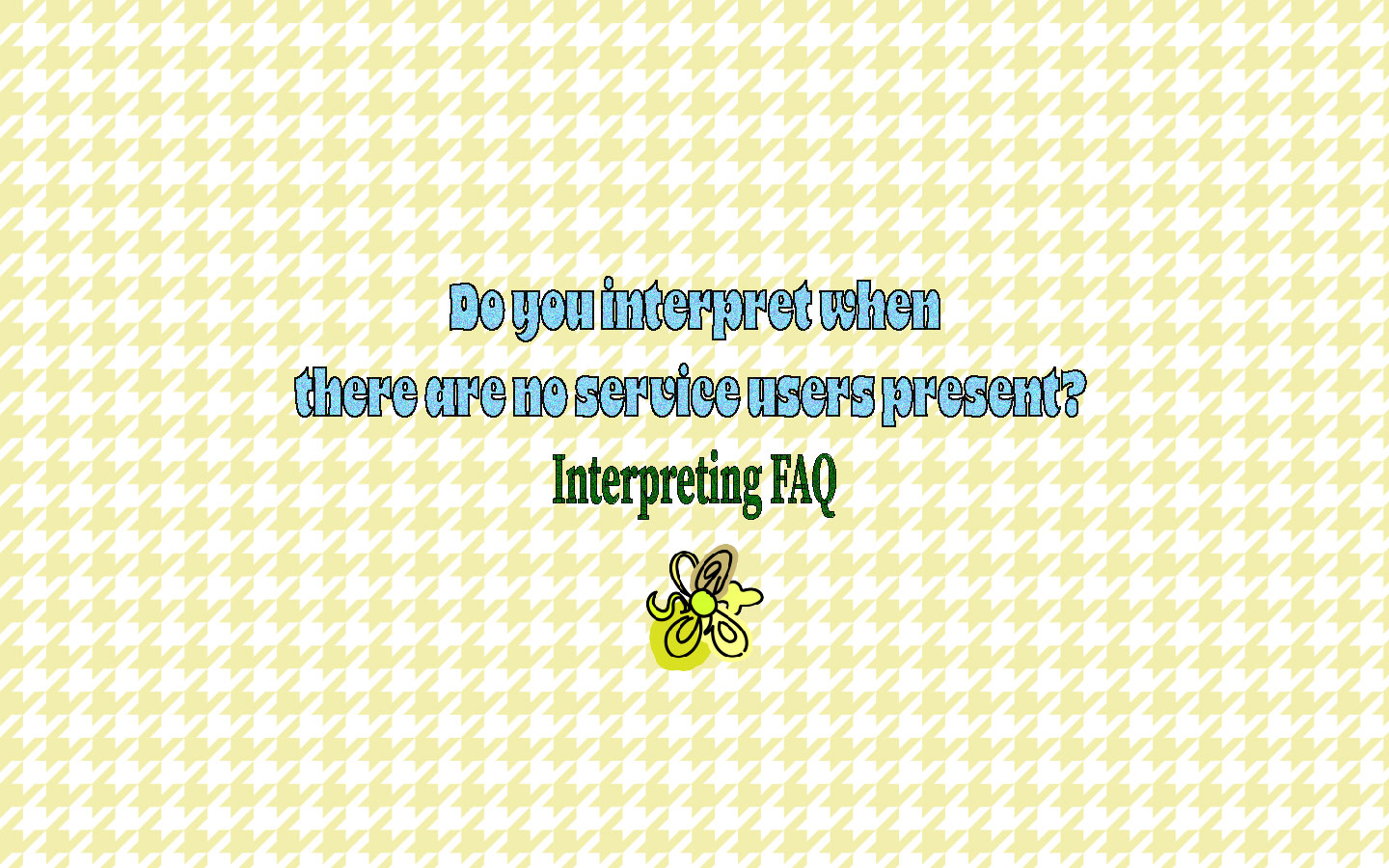Q: Do I need to go to school or receive special training to be an interpreter?
A: Technically, no. Should you? Yes. At the very minimum, you must have fluency in at least two of the languages you will be working with, knowledge of the Interpreter’s Code of Ethics, and professionalism.
Q: What if there are no service users present, do I still interpret?
A: During one of my first simultaneous events, my interpreting partner made me aware of the possibility of not interpreting when there are no obvious language requestors (this rash decision was made after a quick assessment of the room). As an interpreting coordinator, I was disappointed. How many other times have I proudly dispatched interpreters to community assignments, thanked the organization for their consideration to language accessibility, only to not have services “needed” thus not rendered? Without asking every individual, it’s a bad assumption to make. As a language professional, I was disappointed in my partner’s reaction. This was one of the events I was forced to cover as a dual role employee but I was looking forward to interpreting simultaneously. I accepted it for what it was: I was grateful for the insight my partner showed. Once the programming began, I waited for my partner to begin interpreting as we had agreed. When they didn’t, I began interpreting. My partner caught on, but my heart was hurt with what I had learned. I moved around the room interpreting for all parties.
As a contractor, I understood my partner’s logic to not interpret when there wasn’t anyone present to interpret. But I disagreed with the decision to not provide services for a community event that was paying for them. An assumption was made due to the crowd’s “look” (this is the same agency that told me I “looked like a gringa who learned Spanish” as if that were something bad if I were). I don’t harbor negative feelings, but I was disappointed at the quick “deduction” that no work needs to be done. We can just sit through this and sign off after. Nothing wrong with easy money, eh?
This particular event was sharing a lifesaving message and livestreamed online. Had things been planned better, a dual audio stream could’ve been coordinated. Alas, you live, you learn and you pick your battles. Just adding IT to my resume…
Q: How much money does an interpreter make?
A: You should be getting paid more than $24/hr USD.
Q: What is the difference between simultaneous and consecutive interpreting?
A: Simultaneous interpreting is the overlapping mode of interpreting that has a 5 – 15sec delay due to the interpreter speaking directly after the original speaker’s message is said. If you go to a concert and see an ASL interpreter next to the stage, this is simultaneous interpreting. Consecutive interpreting is the conversational mode of interpreting that allows a break in the conversation for the interpreter to fully convey the last passage. Think of a doctor visit. Doctor asks a question, interpreter repeats it, patient then answers, and interpreter waits for the patient to finish speaking to inform the doctor of what was just said.
Q: Do interpreters have a dress code?
A: Not really. Dress for the occasion and surroundings. If you’re working in a hospital, open toed shoes that wouldn’t be thought twice of during a summer social services house call, will have people looking at you funnily. (FYI, PPE is provided!) Professional casual attire is a safe bet, but it’s up to the interpreter and how they gauge the assignment.
Q: Can I become an interpreter in less than a year?
A: Absolutely. I became CCHI certified within the same year (12 months) I decided to pursue a language career. If you have fluency in at least two languages, you are able to become a professional interpreter. Depending on the work you’re looking to do, you may not even need a national certification.




